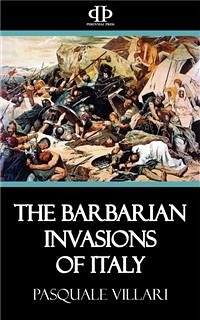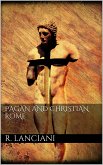What caused the fall of the Roman Empire? The first reply that occurs to us is this: That the Romans were corrupt and enfeebled by corruption; the Barbarians, while rougher, were also stronger and less corrupt. When the latter had once crossed the Rhine and the Danube, their ultimate victory was assured; the Empire was bound to fall, new social conditions were bound to arise. But what had corrupted and weakened a people that had been for so many centuries a model of discipline, virtue, and strength—a people that had conquered the world? Its corruption was a consequence, not a cause, and was the first symptom of the decline that had already begun. The Empire that Livy had seen bending beneath the burden of its own greatness could not last for ever. The Empire had brought into being that moral and civil unity of the ancient world which was a necessary preliminary towards the formation of nationalities. Nationalities, in fact, can neither live nor thrive unless so closely inter-related as to feel themselves members of the same family. But their rise put an end to the existence of that ancient world which recognised the absolute predominance of one civilisation alone, outside of which were only barbarians. Therefore while, on the one hand, and seen from afar, the fall of the Empire may appear an extraordinary, an unexpected event; on the other we are positively moved to amazement by the length of its duration. In fact, under one or another form, we witness its posthumous survival throughout the Middle Ages. Later still, we see vain attempts made to restore it to life, first by Charles V. and then by Napoleon Buonaparte. The truth is that the unity of Europe and the diversity of the nations within its borders are two equally undeniable facts of which the vicissitudes of modern history are the results...
Bitte wählen Sie Ihr Anliegen aus.
Rechnungen
Retourenschein anfordern
Bestellstatus
Storno









